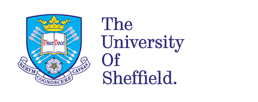
Ben A. van Hout, Dennis D. Gagnon, Pauline McNulty and Anthony O’Hagan,
Julius Center for General Practice and Patient Oriented Research, Academic Medical Center Utrecht, The Netherlands; Johnson & Johnson Pharmaceutical Research and Development, Raritan, New Jersey, U.S.A. and Centre for Bayesian Statistics in Health Economics, University of Sheffield, U.K.
Publication details: PharmacoEconomics, 21, 315-326, 2003.
Background: A number of new anti-epileptic agents have been introduced shortly after one another. Direct comparisons are not available, and information about the balance between costs and effects for these new therapies is lacking.
Purpose: To introduce a first approximation of the cost-effectiveness of new therapeutic agents for epilepsy which have been assessed in clinical trials against a third therapy (e.g. placebo).
Results: When it can be assumed that differences in health care expenditures (less the direct cost of therapy) are directly proportional to differences in effectiveness, a therapy that is x times as effective compared with an alternative therapy has an equivalent cost-effectiveness profile if it is x times as expensive. The uncertainties surrounding the relative cost-effectiveness can be assessed considering the probability of dominance (more effective and cheaper) or weak dominance (more effective and a better cost-effectiveness profile).